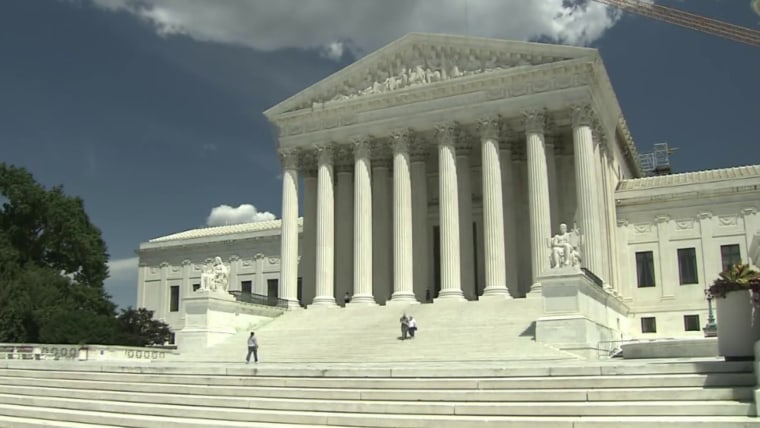Testifying before Congress under oath, especially in response to a subpoena, is no one’s idea of a fun time. Nor should it be. This is serious stuff.
Those who performed poorly often ducked direct questions, gave vague answers, made excuses for mistakes, apologized grudgingly — or not at all.
I recently saw just how serious firsthand. Right before Thanksgiving, the House Select Committee on the Jan. 6 attack on the U.S. Capitol issued a subpoena to conservative activist Dustin Stockton, who helped lead the nationwide “March for Trump” bus tour. Soon after, I became his attorney.
The experience was instructive for both of us, and it’s one that could be helpful to Ivanka Trump as she reportedly discusses the possibility of cooperating with the committee. Several other potential high-profile witnesses have already been subpoenaed, including former White House chief of staff Mark Meadows and, more recently, former New York Mayor Rudolph Giuliani. Giuliani has questioned the validity of the committee’s work, while Meadows has outright refused to cooperate with it. Were I Ivanka Trump’s attorney, I would advise her to take a different course and testify, as I prepped Stockton to do.
Stockton, a political operative based in Reno, Nevada, allegedly organized rallies to overturn the 2020 presidential election. I’d previously counseled clients ahead of depositions, but never for anything quite like the potential spectacle awaiting us in Congress.
How exactly should one appear before the harsh glare of Capitol Hill inquisitors, particularly about an issue as divisive and inflammatory as an attempted insurrection against our democracy? What’s the best strategy for an individual hoping to emerge with blood pressure and reputation intact?
Over the years, I’d watched prominent people hauled before a congressional committee who got it right, and more than a few who got it terribly wrong. Those who performed poorly often ducked direct questions, gave vague answers, made excuses for mistakes, apologized grudgingly — or not at all — for misbehavior, challenged congressional authority, acted adversarial or even hostile and otherwise embarrassed and disgraced themselves.
Facebook CEO Mark Zuckerberg mastered the art of coming across as defiant and dismissive. Turing Pharmaceuticals founder Martin Shkreli pleaded the Fifth Amendment yet took time to mock lawmakers with taunting smirks, which only seemed to accelerate congressional criticism of the drug industry.
I intended to ensure that my client would be spared such embarrassments; and I now hope Meadows and others who have defied the subpoena come to their senses and cooperate as well. I was encouraged by the news that Ivanka Trump is in talks with the committee about voluntarily appearing for an interview.
Testifying before Congress, especially in controversial cases, is a uniquely challenging exercise in part because it’s a form of show business — and it’s the lawmakers who get to write the script. Some senators may take more time asking questions than listening to answers. They often appear more interested in driving home a political point than in learning anything new, relevant or valuable from the person being questioned. Watch any of the recent hearings with executives from Google, Twitter and other Big Tech companies for a glimpse of the righteous indignation displayed by those wielding the gavel.
Such salvos are fired with equal ferocity from both sides of the aisle. So learned Instagram head Adam Mosseri recently as he attested to safety measures the social media platform is adopting to protect young users from harm. Democratic Sen. Richard Blumenthal of Connecticut termed the actions a “public relations tactic” and Republican Sen. Marsha Blackburn of Tennessee accused Mosseri of sounding “callous.”
But some citizens hauled before Congress for a public shaming do manage to walk out unscathed. In 1985, a Senate committee convened to address profane lyrics in rock recordings and called in Frank Zappa — perhaps the most irreverent, anti-establishment artist in the industry — to testify. The senators likely expected to confront a fire-breathing devil. But Zappa appeared in a suit, his stringy hair cropped and his signature fierce mustache trimmed. More important, he acknowledged the seriousness of the issue of unchecked obscenities and offered thoughtful solutions for posting album lyrics on covers for parents to review. By the time Zappa completed his testimony, his horns had been replaced with a halo.
I took inspiration from that encounter, as well as instruction in what to avoid when I advised Stockton what to do when his turn came to testify: Check your arrogance at the door, along with your disdain for a particular party. Commend the hearings for supporting a suitable thesis and purpose. Comport yourself like an eighth grader called to the principal’s office. Remain fully engaged and responsive to any and all questions. Show respect and humility without exception. Speak with courtesy and deference. If Frank Zappa could do it, I reasoned, so can a Republican operative.
My rationale for this strategy was simple. Showing sincere respect and personal responsibility is more than a matter of etiquette; it’s also a way to avoid becoming a sitting pinata. Of course, I warned Stockton that some Republican loyalists would object to him playing the humble servant. That they would contend he’s falling on his sword merely to save face — and that to this accusation he should push back, hard.
So here’s what happened. In mid-December, Stockton gave his side of the story in a Zoom call before congressional staffers. He revealed the exact nature of the role he played before, during and after Jan. 6 — how he warned White House insiders and others that the rally at the Capitol could turn violent and dangerous, how he understood that his concerns eventually reached Meadows, and how then-President Donald Trump should have denounced the riot in no uncertain terms immediately afterwards. Throughout, civility prevailed.
This testimony — underscored by emails and texts Stockton submitted as documentary evidence to the committee — could prove historically pivotal. Thanks to him and others, the hearings are getting to the bottom of the Jan. 6 assault. They’re going to pinpoint once and for all who bears responsibility for inciting the rampage on the Capitol steps. For many Americans, that achievement will go far toward restoring to our republic a desperately needed sense of safety, security and justice. And I submit, that is testimony the world needs to hear.
Source: | This article originally belongs to Nbcnews.com










